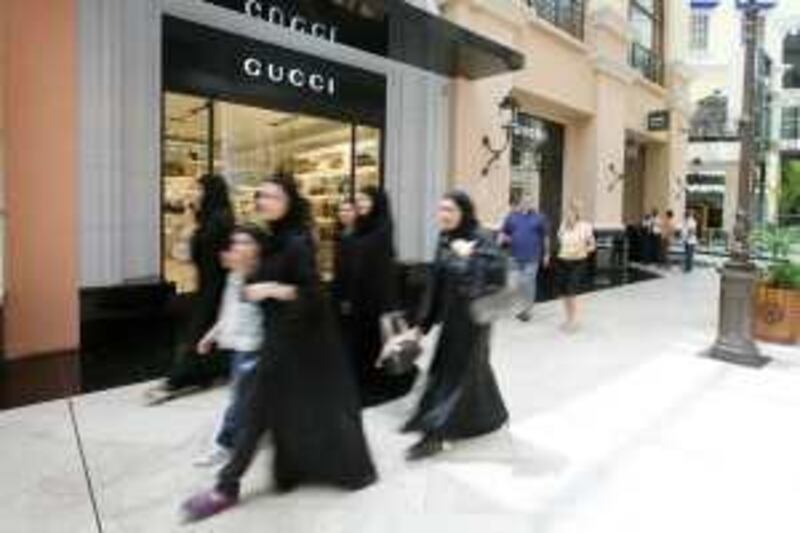DUBAI // The UAE's love of luxury has been stifled by the financial downturn, with sales of expensive cars to jewellery slowing, but retailers are optimistic the Gulf will be among the first regions to bounce back. Bentley Motors, whose top two markets globally last year were Dubai and Abu Dhabi - outselling traditionally big markets including London and Beverly Hills - had seen sales decline 15 per cent so far this year, said Chris Buxton, the car maker's regional director for the Middle East, Africa and India. "It's beginning to slow down," he said. "But what you'll find is we'll have a slow period for six months. The wealth is still here. Whereas in the West, there's no liquidity at all." While the UAE may be faring better than most countries, the shift locally is a stark contrast to consumer sentiment last year. In the first three quarters of 2008, retail sales were growing at double-digit rates. Shoppers were among the biggest consumers of luxury brands, with three out of five customers shopping at Calvin Klein and Gucci, according to a Nielsen survey released in October. Of the total luxury sector - worth an estimated ?175 billion (Dh817.73bn) worldwide last year, according to Bain and Company - the Middle East represents about 2.7 per cent. The consultancy forecast the region's luxury market to increase by 15 per cent in the next five years. However, buyers of luxury - thought to be a recession-proof sector - had started scaling back, said Milton Pedraza, the chief executive of the Luxury Institute, a New York-based research group that tracks the sector. "I don't think it's a significant retreat but I think even the wealthiest people in the world are measuring more than they used to, and that includes the Middle East." Elysabeth Blachais-Catoire, the director of the Middle East Exclusive Expo, the luxury goods and travel retail showcase in Dubai, said the event had felt the effects of the global slowdown. This year's showcase, which started yesterday and finishes tomorrow, has 40 exhibitors, less than half the number last year and the lowest on record. "Normally in a recession, luxury goes up," she said at the Dubai World Trade Centre. "Luxury represents good value for money. That's what happened in the '30s. But what we are living in now is very different to before." As residents became more worried about job security, their first reaction was to halt unnecessary purchases such as luxury items, said Piyush Mathur, the regional managing director for Nielsen in the Middle East, North Africa and Pakistan. "There are two kinds of people, those seriously affected, those without a job, but that's a small proportion," he said. "The others, who are very much the opposite, nothing has happened to them, but with the general macroeconomic environment they are delaying discretionary spending." Rolls-Royce, whose top two dealerships worldwide were also Abu Dhabi and Dubai, had seen also sales "softening" in Dubai last month, said Frank Tiemann, the car maker's communications manager for Europe and the Middle East. aligaya@thenational.ae
Luxury beginning to lose its allure
The UAE's love of the finer things in life has been stifled by the financial downturn.

Editor's picks
More from the national




